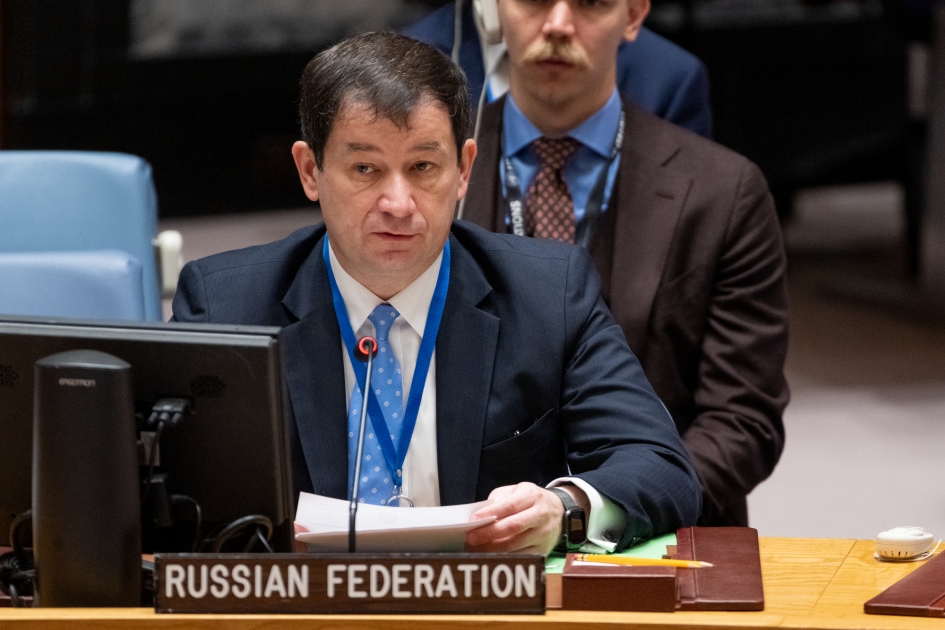Explanation of vote by First Deputy Permanent Representative Dmitry Polyanskiy after UNSC vote on a draft resolution on imposing a sanctions regime on Haiti
Mr.President,
Russia supported the draft resolution put forward by the US and Mexico introducing a UN Security Council sanctions regime against criminal groups in Haiti.
Elaboration of a mutually acceptable draft did not come easily to the Council. We note that the authors of the text adjusted their initial approach, which was not very constructive, and ultimately took into account the concerns of other Council members that had to do with excessive haste around this issue and related artificial deadlines. The fact that we have a consensus on this resolution shows that even in the current circumstances the Security Council is able to achieve good results, if we all act responsibly, respect each other’s positions and have genuine interest in finding a compromise in order to solve most challenging problems by collective efforts.
We hope that when promoting this sanctions decision, Washington and Mexico proceeded from the shared opinion of regional actors, many of which, frankly speaking, are under no lesser pressure of organized crime than Haiti itself. In this connection, the United States is not on the “white list”, far from that.
Despite our support for the resolution, we are not completely sure that international restrictive measures will provide an adequate response to the entirety of problems that are corroding Haiti. A lasting solution must be sought in the area of inclusive political process and socio-economic development, eradication of poverty and inequality. State institutions in Haiti need to strengthen and be free from external dictation, which as we see has been running through almost all Haitian modern history.
The problems of illegal arms trafficking and organized crime in the Caribbean are not confined to Port-au-Prince alone. Intricate cross-border networks also involve other actors, some of them rather high-profile, and they must not escape from the eye of the sanctions committee to be established and its panel of experts, that is called to act only within its respective mandate.
In any case, restrictive measures must not lead to alienation of Haiti or hinder its political process. UNSC sanctions is not a punitive tool, but rather one of the instruments enabling the Security Council to respond to the emerging threats. International restrictions must be regularly analyzed to check if those are still adequate and be loosened or completely lifted once necessary. We will keep monitoring that.
Thank you.
